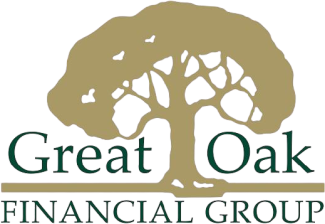
Planning a Family – What to Save for Right Now
The decision to go forward with your plans to start a family is a joyous one, but it can also lead to increased stress especially if your financial house has not been child-proofed. Considering that, on average, the cost of raising a child now exceeds $300,000, there’s little margin for error for most young families that have other important financial goals to achieve. There’s no reason why you should get caught off guard or caught in cash crunch as long as you plan ahead. The following family planning checklist contains what is deemed by most new parents as being the most essential steps in preparing for a new arrival:
- What is the cost for baby-proofing everything? You need to take a complete inventory of the requirements needed for you house, your yard, and your cars to bring them up to baby standards.
- In addition to another mouth to feed your newborn will require a constant stream of supplies. Can you afford a warehouse club membership?
- Expect an increase in your electric and water bill (you’ll be doing several extra loads of laundry a week).
- Is your health coverage up to snuff? Obviously you will need to add your child to your policy, but have you reviewed it recently to determine if it has the right coverage for a family?
- What are your child care needs? If you’re both going to be working, the average child care costs can run as high as $800 a month, almost the size of a small mortgage. Have you looked into alternatives such as employer daycare, nanny-sharing, reducing work hours?
- Will you require parental leave from work? What does your employer provide in terms of time and paid leave? Beyond that, what can you afford in time off? You will need some savings to offset any reduction in income.
- Are your papers in order? You need a will that includes guardianship arrangements.
- You need a life insurance plan that will fully cover your family’s needs – enough to provide for a surviving parent and child, payoff debt, and fund a college education. Don’t wait until after the baby has arrived to secure proper life insurance coverage.
- Have you paid down your debt? It’s tough to cover the additional expenses of a new family while still paying costly interest charges. Debt elimination should be a priority.
On the plus side, you will earn yourself a $3,950 dependent exemption which reduces your Adjusted Gross Income by that amount. To have that translate into extra monthly income you can use, you will need to adjust your W-4 withholding with your employer. Also, depending on your income, you may qualify for a Dependent Care Tax Credit. It would be worthwhile to check with a tax professional to determine what tax savings you might be able to realize once your child is born.
A Family Emergency Fund is Your Top Savings Priority
When considering all of these new family essentials, it’s easy to see how a family’s budget can increase by over $1,000 a month, and doesn’t include anything unexpected, like a medical emergency. If you’re planning to start a family you need to determine the incremental increase in your budget; and, even if you determine that you will have sufficient income to cover the increase, it is critically important to build up your emergency fund. At a minimum, your cash reserve should equal 12 months worth of living expenses, and that should be based on your new family budget. Before saving for anything else, including a bigger house or a college education, all of your savings should be allocated to an emergency fund.
The cost and availability of life insurance depend on factors such as age, health, and the type and amount of insurance purchased. Before implementing a strategy involving life insurance, it would be prudent to make sure that you are insurable by having the policy approved. As with most financial decisions, there are expenses associated with the purchase of life insurance. Policies commonly have mortality and expense charges. In addition, if a policy is surrendered prematurely, there may be surrender charges and income tax implications.
*This content is developed from sources believed to be providing accurate information. The information in this material is not intended as tax or legal advice. It may not be used for the purpose of avoiding any federal tax penalties. Please consult legal or tax professionals for specific information regarding your individual situation. This material was developed and produced by Advisor Websites to provide information on a topic that may be of interest. The opinions expressed and material provided are for general information, and should not be considered a solicitation for the purchase or sale of any security. Copyright 2025 Advisor Websites.

